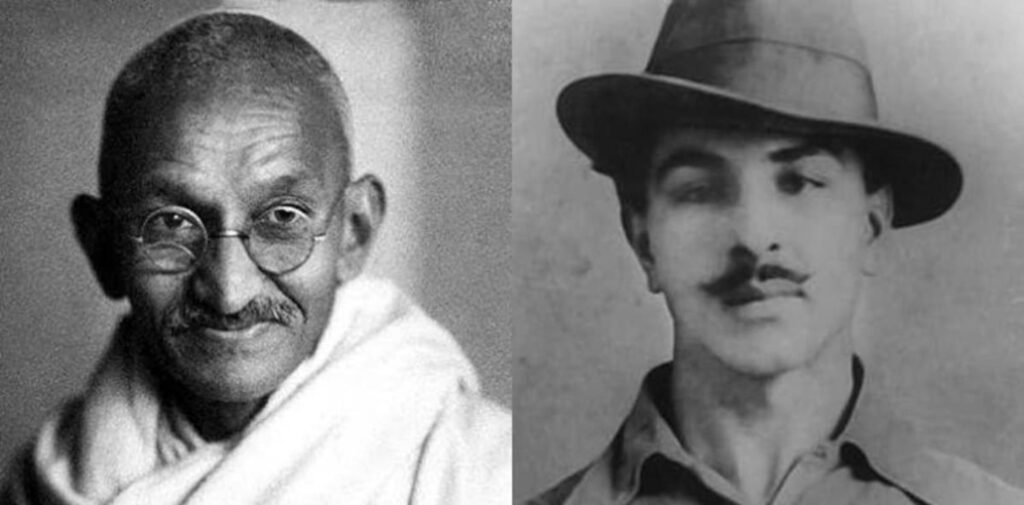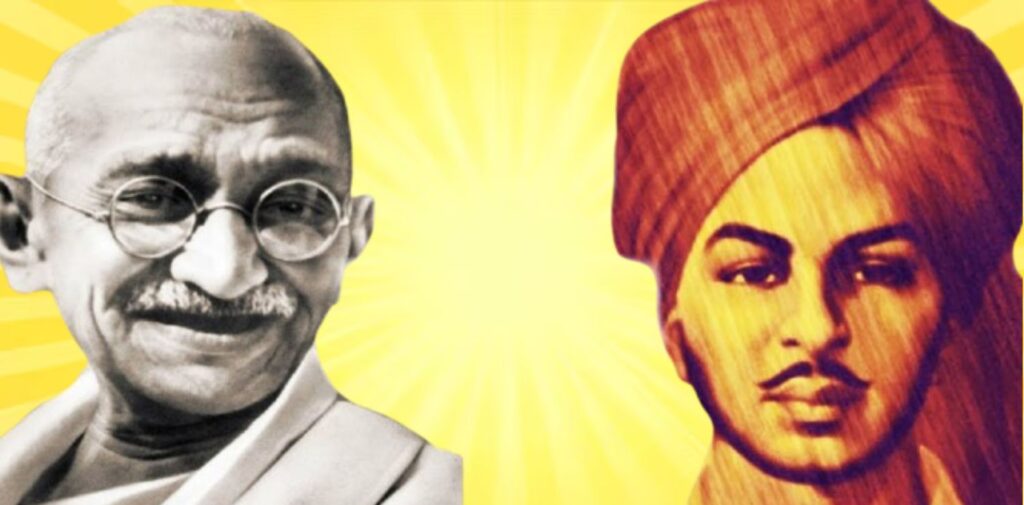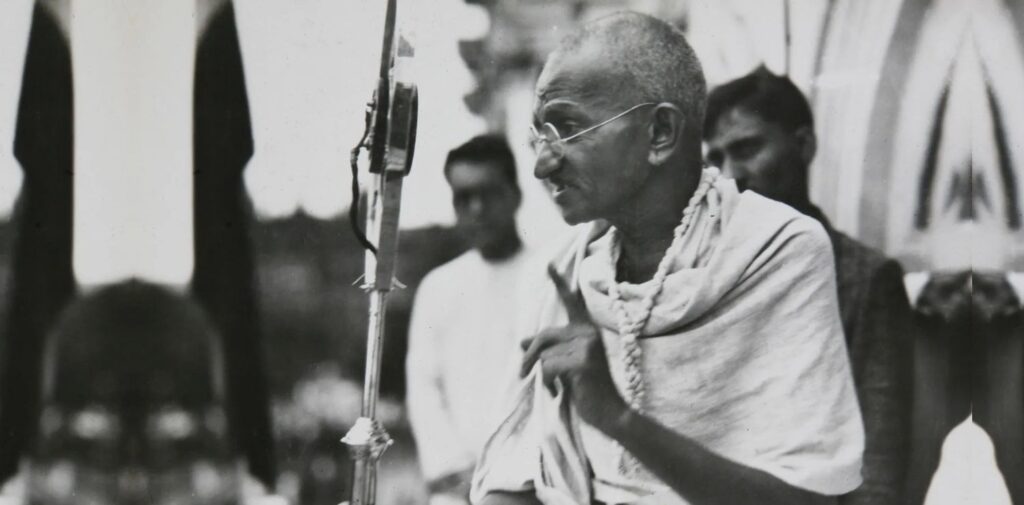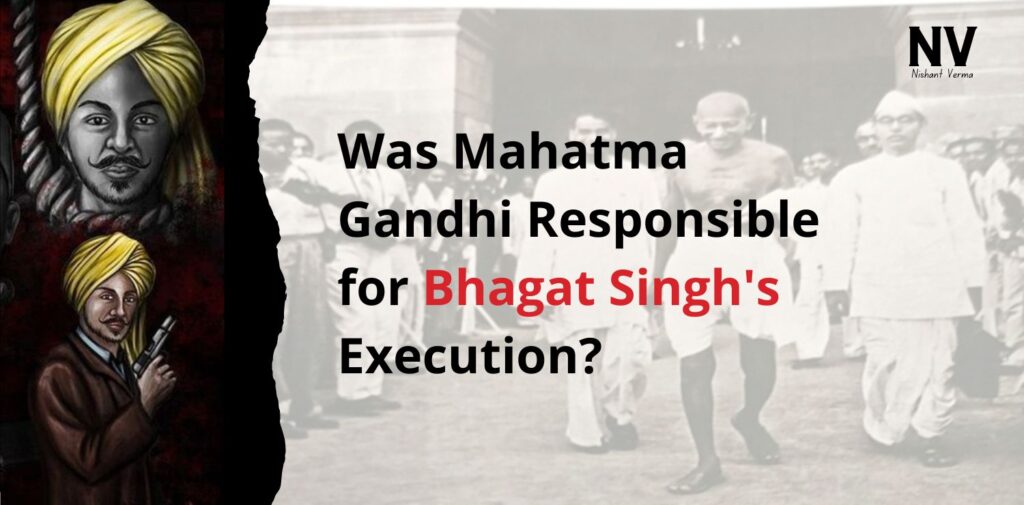The relationship between Mahatma Gandhi and Bhagat Singh has always been a contentious issue in Indian history. While Bhagat Singh’s is revered as a revolutionary who gave his life for India’s freedom, many argue that Gandhi, despite being the most influential leader of the time, did not do enough to save him from the gallows. This article delves into whether Gandhi’s actions—or lack thereof—ultimately sealed Bhagat Singh’s fate.
The Context: Bhagat Singh’s Revolutionary Stance
Bhagat Singh, along with his comrades, was arrested for his involvement in the Lahore Conspiracy Case and the bombing of the Central Legislative Assembly in 1929. Singh’s revolutionary approach was seen as a direct contrast to Gandhi’s philosophy of non-violence. His trial and subsequent death sentence became a rallying point for millions of Indians who saw him as a martyr.
Singh’s execution was scheduled for March 23, 1931, and many believe that Gandhi, who was then negotiating the Gandhi-Irwin Pact, could have used his political leverage to intervene and save Bhagat Singh’s life.

Gandhi’s Stand on Bhagat Singh
The core of the controversy lies in Gandhi’s unwillingness to openly support Bhagat Singh’s methods, which he saw as counterproductive to his vision of a non-violent struggle. According to some historians and critics, Gandhi viewed Bhagat Singh’s revolutionary methods as dangerous and feared they would undermine his non-violent movement.
However, it’s also argued that Gandhi was under immense pressure to not be seen as supporting revolutionary violence. Gandhi’s letters and speeches indicate that while he admired Bhagat Singh’s courage, he was steadfast in his belief that such violent means were harmful to the cause of Indian independence.
Did Gandhi Really Try to Save Bhagat Singh?
Several historians argue that Gandhi did raise Bhagat Singh issue during his negotiations with Lord Irwin, the then Viceroy of India. Gandhi reportedly urged Irwin to commute Singh’s death sentence to life imprisonment, but his requests were either too weak or came too late to have any real impact.
One critical point to consider is that Gandhi signed the Gandhi-Irwin Pact on March 5, 1931, a mere 18 days before Bhagat Singh execution. The pact included the release of political prisoners, but no specific mention was made of Bhagat Singh or his associates. Critics claim this was a missed opportunity where Gandhi could have exerted pressure.
In his autobiography and various writings, Gandhi mentioned that he was pained by Bhagat Singh’s impending execution but maintained that he was powerless to change the decision. This perceived lack of action has been a point of criticism for many.

The Argument Against Gandhi
Several scholars, including noted lawyer A.G. Noorani, suggest that Gandhi could have played a more assertive role. Noorani contends that Gandhi’s failure to explicitly demand Singh’s release during the negotiations with Lord Irwin showed a lack of commitment to save a popular freedom fighter. He argues that Gandhi, given his stature and influence at the time, could have convinced Irwin to reconsider the decision, but he chose not to.
Gandhi’s detractors argue that his silence, or reluctance to take a firm stand for Bhagat Singh, was politically motivated. They believe that Gandhi’s fear of losing control over the independence movement and being overshadowed by the popularity of Bhagat Singh played a role in his tepid response.
Gandhi’s Defense: Constraints and Political Realities
Supporters of Gandhi argue that he was caught in a complex political situation. Any overt support for Bhagat Singh could have led to the British labeling the entire Congress party as extremist, potentially derailing the non-cooperation movement. They believe that Gandhi did as much as he could without compromising his principles or the broader independence struggle.
Furthermore, it is argued that even if Gandhi had pushed harder, it’s unlikely the British would have relented. The British saw Bhagat Singh as a symbol of the growing radical sentiment in India and wanted to make an example out of him.

Was Gandhi’s Influence Really Limited?
While it’s true that Gandhi did not have the executive power to overturn a court ruling, his status as the foremost leader of the Indian independence movement gave him unparalleled influence. Many believe that a strong and consistent public campaign from Gandhi could have created sufficient pressure to at least delay the execution, if not stop it altogether.
The lawyer of Bhagat Singh and his comrades, Pran Nath Mehta, reportedly visited Gandhi multiple times to plead for his intervention, but Gandhi remained non-committal. Critics argue that this lukewarm response further cemented the perception that Gandhi’s actions were driven more by political calculations than moral conviction.
Conclusion: Could Gandhi Have Saved Bhagat Singh?
Given the circumstances, it’s fair to conclude that Gandhi could have done more to intervene and possibly save Bhagat Singh. His lack of a decisive stand until the very last moment left many Indians disillusioned. While Gandhi did make efforts, they were seen as insufficient and half-hearted.
Bhagat Singh’s execution, thus, became a defining moment that highlighted the ideological rift between Gandhi’s non-violent approach and the revolutionary fervor of leaders like Singh. Whether or not Gandhi was solely responsible, his role in the events leading up to the execution remains a contentious issue in Indian history.




